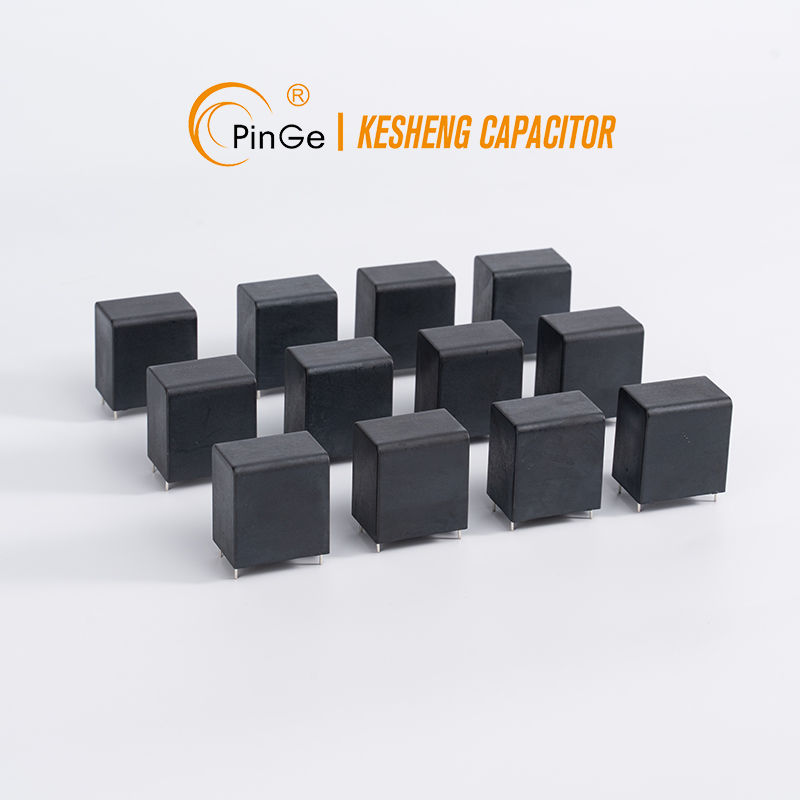Does capacitor have AC or DC?
Does Capacitor Have AC or DC?
Capacitors are fundamental components in electronic circuits, playing a vital role in various applications. To understand the behavior of capacitors and their interaction with different types of circuits, it's important to explore their characteristics in both AC (alternating current) and DC (direct current) circuits. In this article, we'll delve into the world of capacitors, exploring their behavior, types, and applications in both AC and DC circuits.

Understanding Capacitors
Before we dive into the specifics, let's first understand what capacitors are and how they function. A capacitor is an electronic component that stores and releases electrical energy. It consists of two conductive plates separated by an insulating material known as a dielectric. When a voltage is applied across the plates, an electric field is created, causing the capacitor to store an electric charge.
Capacitors in DC Circuits
How Capacitors Behave in DC Circuits
In a DC circuit, which carries a constant voltage, capacitors act as temporary energy storage devices. When a capacitor is initially connected to a DC voltage source, it charges up until it reaches its maximum charge. Once fully charged, the capacitor blocks the flow of DC current as it behaves like an open circuit. However, if the DC voltage across the capacitor changes, it will either charge or discharge accordingly.
Types of Capacitors Used in DC Circuits
There are various types of capacitors used in DC circuits, including electrolytic capacitors, ceramic capacitors, film capacitors, and tantalum capacitors. Each type has its own characteristics, such as capacitance value, voltage rating, and temperature stability, making them suitable for different applications within DC circuits.
Capacitors in AC Circuits
How Capacitors Behave in AC Circuits
In an AC circuit, which alternates its voltage and current direction periodically, capacitors behave differently compared to DC circuits. Capacitors become integral components for filtering, coupling, timing, and power factor correction in AC circuits. They allow the passage of AC current while blocking DC current due to their reactive nature.
Types of Capacitors Used in AC Circuits
Similar to DC circuits, different types of capacitors are used in AC circuits, such as electrolytic capacitors, ceramic capacitors, and film capacitors. However, some capacitors are specifically designed for AC applications, like motor start capacitors and power factor correction capacitors, due to their unique characteristics and requirements in AC circuits.
Capacitor Applications in Electronics
Capacitors find extensive use in various electronic applications. Let's explore some of the common applications where capacitors play a crucial role:
1. Power Supply Filtering
Capacitors are used in power supply circuits to filter out undesirable noise and ripple voltages. They smooth the output voltage, providing a stable and clean power supply to sensitive electronic components.
2. Signal Coupling and Decoupling
Capacitors are employed in coupling and decoupling circuits to enable the transfer of signals between different stages of amplification or processing. They prevent DC bias from affecting AC signals and help maintain the integrity of the transmitted signals.
3. Timing Circuits and Oscillators
Capacitors are crucial in timing circuits and oscillators, where they control the frequency and period of oscillation. They are commonly found in applications such as clock generators, pulse generators, and tone generators.
4. Motor Starting and Power Factor Correction
Capacitors are used in motor starting circuits to provide an initial boost of current, enabling motors to overcome the inertia and start smoothly. Additionally, capacitors are utilized in power factor correction circuits to optimize the efficiency of electrical power distribution systems.
Conclusion
In conclusion, capacitors exhibit unique behavior in both AC and DC circuits, making them indispensable components in various electronic applications. Understanding the differences in capacitor behavior in AC and DC circuits allows engineers and enthusiasts to design circuits that efficiently harness their potential. Whether it's for power supply filtering, signal coupling, timing circuits, or motor starting, capacitors are essential for ensuring the smooth operation and functionality of electronic systems.
FAQs
Q1: Can a capacitor store both AC and DC?
A1: No, capacitors can store and discharge electrical energy, but they do not differentiate between AC and DC. They can store both types of electrical energy, depending on the circuit in which they are used.
Q2: Can a capacitor convert AC to DC?
A2: No, capacitors cannot convert AC to DC. They can only store and discharge energy. To convert AC to DC, rectifier circuits, such as diode bridges, are used.
Q3: What happens if you connect a capacitor to an AC source in reverse polarity?
A3: If a capacitor is connected to an AC source in reverse polarity, it may get damaged or fail to function properly. It is important to connect capacitors correctly to avoid such issues.
Q4: Can capacitors be used to block DC signals in AC circuits?
A4: Yes, capacitors can block DC signals in AC circuits. Due to their reactive nature, capacitors allow the passage of AC current while blocking DC current.
Q5: How do capacitors affect the frequency response of a circuit?
A5: Capacitors can affect the frequency response of a circuit by acting as high-pass or low-pass filters. They allow certain frequencies to pass while attenuating others, thereby shaping the overall frequency response of the circuit.



